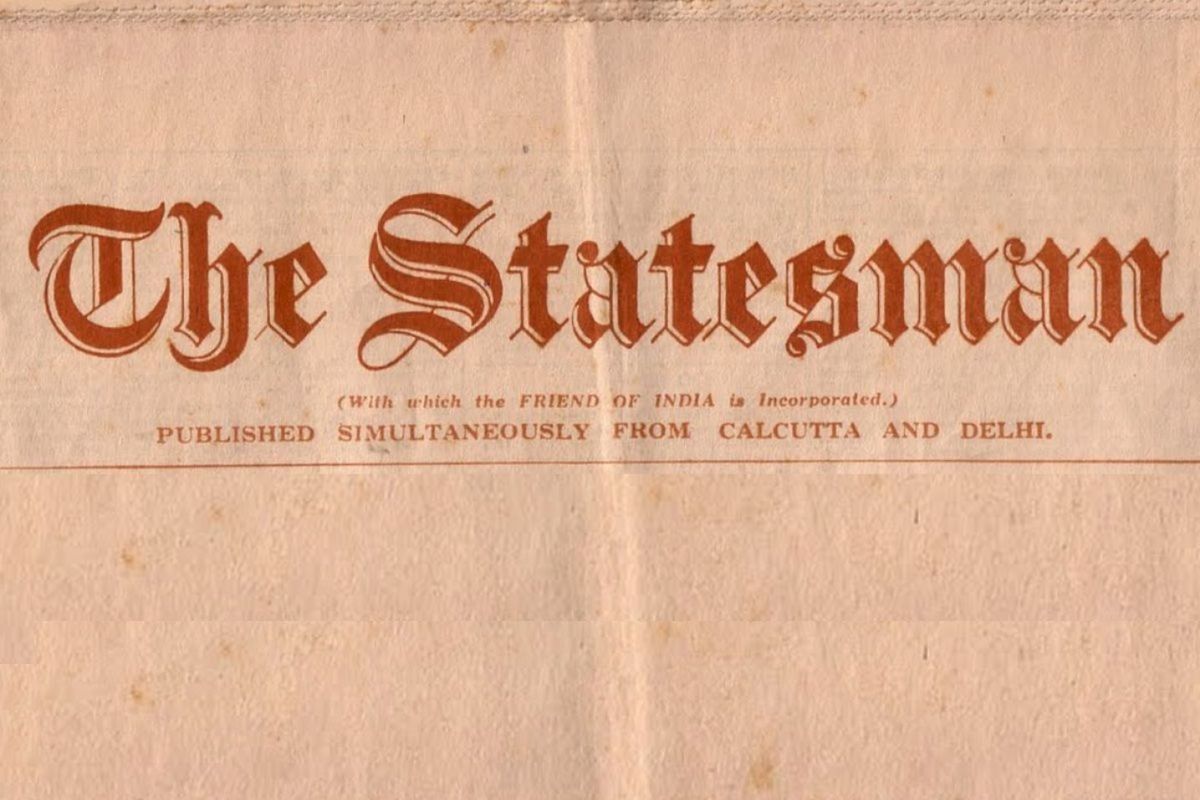Leading women personalities on what it takes to be a woman!
On International Women's Day, The Statesman talked to esteemed women personalities from various fields on what it takes to be a woman in our country and what empowers them.
On this day a century ago, these were some of the news items The Statesman readers got to read about India and the world.

OCCASIONAL NOTE
A White Paper prepared under the Profiteering Act and dealing with the price of quinine has been presented to both Houses of Parliament. It states that 90 per cent of the world’s supply of quinine comes from the plantations of Java, of which there are 120 in the hands of the Dutch and six in the hands of British owners. The Dutch at present supply ten-elevenths of the Java production. The amount of quinine supplied by the Government plantations in India makes up the remaining one tenth of the total, but it is not sufficient for the needs of India alone. During a period of overproduction about twenty years ago quinine was being sold in Britain at seven pence an ounce, but this was not a remunerative price and a combination of planters and manufacturers, in which German interests were for some time paramount, led to an increase and standardisation of the price. The operations of this combination were finally entrusted to an organisation known as the Kina Bureau at Amsterdam. During the war our War Office took possession of all the stocks of quinine in the country and also made an agreement with the six British owned plantations in Java to purchase all their produce. The proviso was made, however, that the price paid would not be less than what would have been obtained under the regulations of the Kina Bureau, and now that the War Office has released its control the price of quinine has actually risen.
Advertisement
BOMBAY MILL STRIKE ECHO
Advertisement
BOMBAY, FEB 24
In the terms of the settlement of the millhands’ strike in Bombay, all mills paid the stipulated bonus of one month’s pay to their employees on the 21st instant. It was feared that once the millhands had received this bonus, further unrest might manifest itself among them. This fear was realised though to a very small degree on Monday afternoon when a small portion of two or three mills showed signs of unrest by stopping work, but still standing at their respective posts. The demand of these men appears to be the payment of a portion of the strike days’ pay. It does not appear at present that these dissatisfied men have got much support from other millhands and no serious trouble is apprehended.
MADRAS HOUSES Rev. D.G.M.
Leitch has given notice of a resolution to be moved at the general meeting of the Madras Corporation tomorrow, that in view of the overcrowding and difficulty of securing houses in the city a committee of the Corporation be appointed, to make a careful survey of the situation and to consider in consultation with the Tramway and Railway Companies, Government and other bodies interested, the steps that should be taken to increase the number of houses available for occupation by the poorer classes of the city. COURT-MARTIAL AT BANGALORE A general court-martial, comprising Colonel McClintock R.E., as president, Captain R.W. Walker (East Kents), and Major H.N. Baker concluded on Saturday the trial of Second-Lieutenant Henry Clay Inman I.A.R.O., 2nd Battalion, 73rd Malabar Infantry. The charges were of unbecoming behaviour as an officer in giving some postdated cheques which were afterwards dishonoured. Mr. H. Lubeck, barrister, defended the accused. Defendant pleaded that the cheques were given in the expectation that he would have money in the bank or that he would be able to redeem his debt. He never intended to mislead his creditors by false representations. The court deferred judgment and remanded the accused to arrest.
BANGALORE TRAGEDY
A Sapper named Varadarajalu is in police custody for the alleged murder of a ward boy of the Indian Station Hospital named Ranguswamy. It would appear that accused had taken a bayonet without the knowledge of his superiors and went to the Station Hospital unknown to the guard and when deceased was attending to his work stabbed him. The inquest was held by Inspector Roberts when the verdict that death was due to stabbing by the accused was returned. It is stated that both the deceased and accused has been friends but that they fell out recently owing to some love intrigue.
MESTON COMMITTEE
RANGOON, FEB 24
Lord Meston and the members of the Finance Committee left this morning for Calcutta. Mr. and the Misses Roberts nearly missed the steamer as the train from Moulmein arrived two hours late. They had spent Sunday and Monday there. On Monday Lord Meston received a deputation of rice millers on the subject of control. On Sunday he motored eighty miles north of Rangoon and had first hand experience of Burma’s road deficiencies. On Monday night he dined with Hon. Mr. Holberton, Chairman of the Burma Chamber of Commerce.
Advertisement